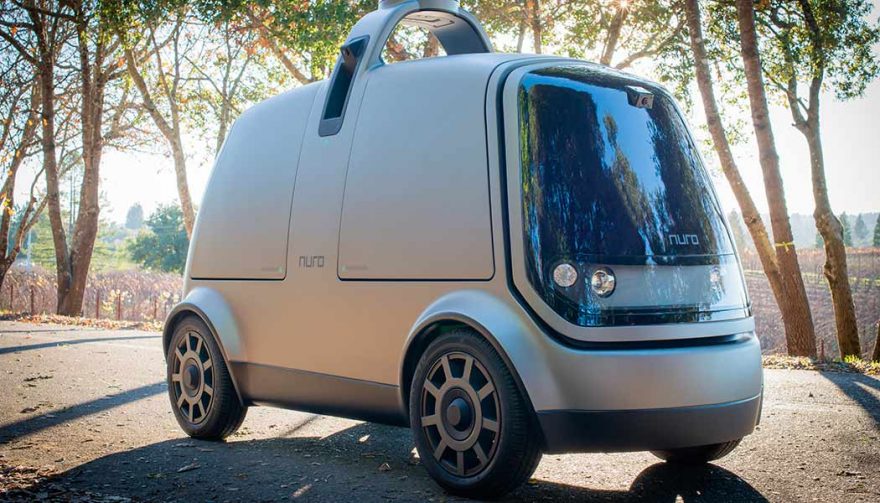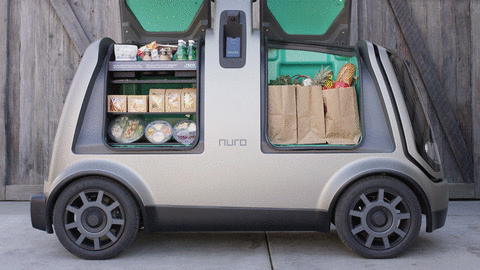
Nuro's first self-driving vehicle could change local goods transportation
This New Self-Driving Vehicle Can Run Errands For You
Two former engineers from Google’s self-driving car division introduced their first self-driving vehicle today as they formally launched their new company. Silicon Valley-based Nuro will focus on applying and developing new robotics and artificial intelligence technologies for everyday challenges.
To start things off, Nuro’s first product is a fully autonomous vehicle that can basically “run errands for you,” according to a release. At least so long as that errand involves moving goods from one place to another. Like picking up groceries or other products.
“We started Nuro to make products that will have a massive impact on the things we do every day,” said Nuro Co-founder Dave Ferguson.
“Our world-class software, hardware and product teams have spent the past 18 months applying their expertise to deliver on this mission. The result is a self-driving vehicle designed to run your errands for you. It is poised to change the way that businesses interact with their local customers.”
The Nuro team designed the yet-to-be-named vehicle specifically to move goods between businesses, neighborhoods and homes.
Nuro says the company will create partnerships with a variety of businesses to explore new ways to cost effectively transport goods.

Indeed, it isn’t a stretch to imagine this Nuro vehicle rolling down neighborhood streets filled with packages from Amazon.
Toyota unveiled a similar concept at the 2018 CES. The Toyota e-Palette Alliance concept is a mobility device that combines ride-sharing, delivery, retail and all sorts of other commercial enterprises.
According to a release the Nuro vehicle is about half the size of a passenger car. And designers constructed it with ultra-light materials. However, the company claims these elements make the vehicle “one of the safest vehicles on the road.”
The company also announced today that they had raised $92 million in two Series A rounds of financing.
A Few Questions
The introduction of Nuro’s self-driving vehicle did leave a few unanswered questions. In particular the business model behind the product.
Would individual households purchase a vehicle to do their bidding? Would a business own one or more of the devices to provide services for customers? Or would the company itself put fleets of their cars in cities to function as a type of riding-sharing delivery service?
Also, there is no word on a timeline for a commercial launch of the new self-driving vehicle.





